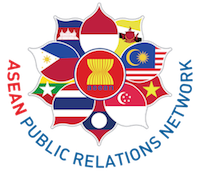There’s a mental health epidemic facing the PR profession, with around a quarter (23%) of practitioners saying they’ve taken sickness absence from work on the grounds of stress, anxiety or depression.
This is just one of the findings from this year’s State of the Profession 2019 survey from the Chartered Institute of Public Relations (CIPR), which is hot off the press today.
What does the survey reveal?
The nature of PR work contributes directly to poor mental health amongst practitioners, according to the report. More than a fifth (21%) of respondents said they had a diagnosed mental health condition and over half (53%) said work contributed highly to their diagnosis, with unrealistic deadlines and unsociable hours cited as common causes.
The survey was delivered by CIPR in partnership with Chalkstream, who surveyed 1,503 respondents (compared to 1,752 in 2018) between 9 November and 14 December 2018.
Worryingly, the report reveals a significant number of line managers fail to address mental health concerns amongst employees. Almost a quarter (23%) of respondents who discussed concerns about their mental health with a manager said that nothing happened as a result of those conversations.
What do the experts think?
Jo Hooper, workplace mental health specialist and Director of mad and sad club told me: “Comms is stressful. That adrenaline either works for you or it works against you – for me, over time it became the latter and it seems the same is true for more than half of our industry. This CIPR report shines a light on the impact your job can have on your mental health and the industry needs to pause, listen and take action.
“Managers, HR professionals and senior leaders need to understand the signs and effects of mental health; feel confident talking about it and know how to take action to support people who are struggling. That’s support when someone is first struggling, when they’re trying to actively manage their mental health condition at work or out of the business, and when they return – which is often the trickiest point. Feeling confident offering this sort of support isn’t easy when you haven’t experienced a mental health problem, so we need to train our managers.
Practitioners claim to believe PR is more effective when practiced by diverse teams, but the data raises serious questions over whether the industry is truly committed to addressing its diversity crisis.
sources : https://www.allthingsic.com/the-mental-health-epidemic-facing-the-pr-profession/







